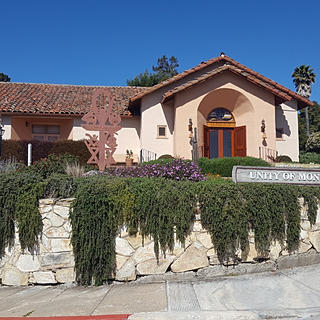Rev Michelle's Message July 17, 2021
- M Price
- Jul 19, 2021
- 3 min read
T

his past week the new 2020 Census of American Religion from the Public Religion Research Institute came out, and clergy colleagues of mine were posting links on social media to articles with titles like, “White Evangelicals Now Outnumbered by Mainline Protestants in U.S.” and “The Rapid Decline of White Evangelical America?” Apparently one of the most striking findings of the 2020 Census is a decline in the number of white Evangelicals in the United States. One article reveals there are now more White nonevangelical Protestants than evangelical ones for the first time since at least 2006 (July 8, 2021: The Washington Post). Another article points out that according to PRRI, mainline Protestants now account for 27 percent of white Christians, while Evangelicals make up 23 percent (July 8, 2021: New York Magazine). Is this good news? While we at Unity honor and respect all paths to God, the values and social justice stances of many Evangelicals frequently come into direct conflict with our own teachings and beliefs—particularly as they pertain to human rights, human dignity, diversity, and the all-inclusive nature of God’s love. While Unity sort of exists in its own denominational category, many Unity members and clergy consider themselves part of the Progressive Christian movement and feel a close affinity with other liberal Protestant denominations such as the United Church of Christ, the Christian Church (Disciples of Christ), and the Episcopal Church. While beliefs vary among these denominations, most of them espouse a less dogmatic, more inclusive, spiritually diverse, open and affirming approach. Additionally, most take a more liberal, nonliteral approach to interpreting the Bible and permit, or even encourage, members to hold diverse beliefs and to engage in theological questioning and exploration. Therefore, I (and I believe Vicky would agree) see this trend revealed in the 2020 Census as a positive thing. At the very least, it means that Americans are moving away from more dogmatic, rigid, prescriptive religion and are embracing a more open, progressive type of spirituality. This, to me, feels like a move in the right direction and one that is in alignment with our Unity teachings. Now, how do we get some of these more spiritually progressive folks to join us on Sunday mornings? That is, and has been, the question for many years…. In addition to a decline in their overall numbers, the Census data also showed that Evangelical Christians are quite concentrated in older folks (making up 22% of Americans 65 and older and just 7 percent of those between 18 and 29 years of age), so it would seem wise for us to concentrate on targeting the younger generations. However, while research shows that many young people are indeed interested in spirituality, what they typically lack is the habit of getting up and going to church on Sundays. Church attendance is, in fact, a discipline of sorts—a spiritual practice of dedicating a portion of our collective day off (for most) to spiritual endeavors. In this week’s Sunday lesson, I will be exploring the concept of the Sabbath—a time set aside for rest and for spiritual practice. We’ll be looking at what the purpose of a Sabbath or rest day is and how a Sabbath practice can be a type of resistance against the grind of our 24/7 culture. As we explore these ideas, I invite you to begin to think of your own attendance at church (whether in person or online) as a form of spiritual discipline, as a Sabbath practice, a kind of resistance to our material, productivity-obsessed society, and as a statement of your own liberation from the grind of our busy culture. Sound interesting? Check it out this Sunday at 10 a.m. in person, on Facebook Live, or on our YouTube channel! Many Blessings! Rev. Michelle













Comments